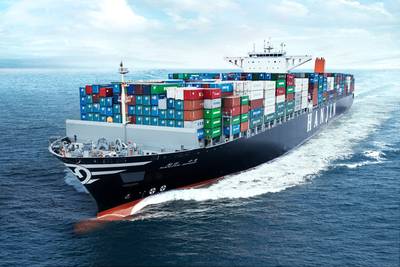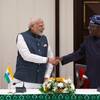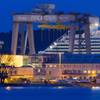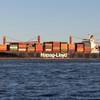HSH Nordbank Seals Charter of Hanjin Ships to Maersk
Germany's HSH Nordbank has arranged a deal which will see six container ships from collapsed South Korean line Hanjin chartered out to Denmark's AP Moller Maersk, the state-backed lender said on Thursday.
This is one of the first examples of Hanjin's lenders looking to resolve the fallout from the shipping firm's collapse in August, which has left an estimated $14 billion in cargo stranded on its ships.
HSH, which was among a consortium of banks that had financed Hanjin ships, said in a statement that Maersk's container unit, the world's No. 1 line, would operate the six vessels.
"The chartering of the container ships by Maersk Line means that, in a difficult setting, these ships have been given a long-term perspective following the insolvency of Hanjin," said HSH's chief risk officer Ulrik Lackschewitz in the statement.
"In Maersk Line we have a strong partner at our side for this transaction."
Maersk confirmed the arrangement without providing further details.
The global container shipping sector is struggling with its worst ever market conditions, caused by a glut of ships and slowing global trade, which has battered earnings and forced at least one out of business.
A source involved in the transaction told Reuters HSH had separately arranged together with three other banks for three additional Hanjin ships to be chartered out to the world's No. 2 line, Swiss-based MSC.
MSC did not immediately comment.
This week Hanjin said its European routes services had completed stopped and a Seoul court overseeing its receivership process has approved winding down four of its European units.
HSH has been under pressure due to the global shipping sector downturn and is trying to offload assets.
The bank turned to its state owners after risky assets turned sour in 2008. In March, the European Commission approved a bailout which includes an ambitious plan to hive off a total of 8.2 billion euros ($8.96 billion) in bad loans, 5 billion of which are being transferred to the state owners, while the lender must sell up to 3.2 billion itself.
(Reporting by Jonathan Saul in London, Andreas Kroener in Frankfurt and Annabella Pultz Nielsen in Copenhagen)













